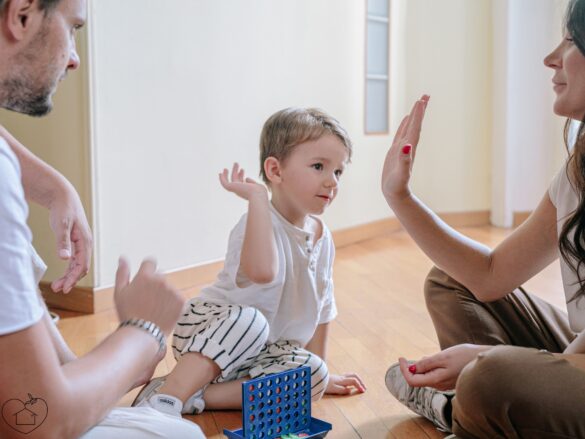The Intimate Partner category contains all the information you need about intimate partner relationships. Remember that Family & Me is a website that aims to support the well-being of you, your children, and your partner. In this context, in the Intimate Partner category, we publish articles aimed at improving your intimate partner relationships, finding solutions to the problems you have with your partner, and, most importantly, ensuring that these problems have a minimal impact on your well-being.

Here’s a glimpse into the intimate partner category on our psychology blog:
-
Understanding Relationship Dynamics:
- Explore the complexities of intimate relationships, including communication patterns, power dynamics, and attachment styles.
- Gain insights into the psychological factors influencing partner selection, attraction, and compatibility.
-
Navigating Conflict and Resolution:
- Learn effective strategies for managing conflicts, disagreements, and misunderstandings within intimate partnerships.
- Discover the importance of healthy communication, empathy, and compromise in fostering relationship resilience and growth.
-
Exploring Attachment Theory:
- Delve into attachment theory and its implications for intimate partner dynamics.
- Understand how early attachment experiences shape adult relationships and influence intimacy, trust, and emotional bonding.
-
Examining Love and Intimacy:
- Explore the multifaceted nature of love, intimacy, and romantic attraction.
- Consider the psychological and neurobiological mechanisms underlying feelings of connection, passion, and commitment in intimate partnerships.
-
Addressing Relationship Challenges:
- Identify common challenges and stressors faced by couples, such as infidelity, trust issues, and life transitions.
- Discover evidence-based strategies and interventions for overcoming relationship hurdles and fostering resilience.
-
Promoting Healthy Relationship Habits:
- Explore the habits and behaviors contributing to healthy, fulfilling intimate partnerships.
- Learn how to cultivate mutual respect, emotional support, and intimacy in your relationship.
-
Cultivating Self-Awareness and Growth:
- Reflect on your attachment style, communication patterns, and relationship dynamics.
- Gain insights into personal growth opportunities and areas for improvement within your intimate partnership.
-
Navigating Relationship Transitions:
- Explore the psychological challenges and opportunities associated with relationship milestones, such as marriage, parenthood, and separation.
- Learn how to navigate transitions with resilience, empathy, and open communication.
How to Be a Good Partner: 10 Challenges and Advice
Building and maintaining a healthy relationship requires effort, communication, and emotional intelligence. Many people wonder how to be a good partner and guarantee that their relationship thrives over time. While love is the foundation, a successful partnership also requires trust, respect, patience, and continuous growth....
Self Sabotaging Relationship: Signs and Solutions
Many people dream of having a loving, supportive, and long-lasting relationship. However, for some, maintaining a healthy bond with their partner feels like an uphill battle. They may unconsciously push their partner away, create unnecessary conflicts, or doubt the stability of their relationship, even when...
What Is Emotional Divorce? Signs and How to Cope
Emotional divorce refers to a state in which a couple remains legally married but has become emotionally disconnected from each other. It is characterized by a lack of intimacy, communication, and emotional support, creating a sense of distance and detachment. Unlike a legal divorce, an...
How Do I Know If I Should Get a Divorce?
How do I know if I should get a divorce? Signs It May Be Time to Consider Divorce Deciding whether to end a marriage is one of the most difficult decisions a person can face. While every relationship has its ups and downs, certain signs...
Passive Aggressive Examples: Signs and Coping Strategies
Signs of Passive-Aggressive Behavior with Examples Passive-aggressive behavior is a pattern of indirectly expressing negative feelings instead of addressing them openly. It often involves subtle actions or comments that convey hostility or resistance. Here are some common signs of passive aggressive examples: 1. Sarcasm and Backhanded...
Stable Relationships: Signs and 10 Tips for Success
Signs of a Stable Relationship A stable relationship is characterized by mutual respect, trust, and emotional security. It’s a partnership where both individuals feel valued, supported, and connected. Here are some key signs of a stable relationship: 1. Open and Honest Communication Both partners feel...
Am I Ready for a Relationship? Challenges of Being Alone
10 Challenges of Being Alone Being alone can be a valuable time for self-discovery and growth, but it also comes with its own set of challenges. Comprehending these challenges can help you reflect on whether you’re ready to transition into a relationship. Here are 10...
Parenting Marriage: Challenges, Psychology, and Tips for Success
What Is a Parenting Marriage? A parenting marriage is a relationship where the primary emphasis is on raising children together, often at the expense of the romantic or emotional connection between partners. In such marriages, couples may stay together for the sake of their children,...
Wedding Stress: Signs, Causes, and How to Stay Calm Before the Big Day
What Is Wedding Stress? Wedding stress refers to the anxiety, pressure, and overwhelm that many couples experience while planning their wedding. It stems from the desire to create a perfect day, coupled with the logistical, financial, and emotional challenges of organizing a major event. From...
Karmic Relationship: Signs, Psychology, and How to Heal
What Is a Karmic Relationship? A karmic relationship is an intense, often tumultuous connection between two people that is believed to be rooted in past-life experiences or unresolved karma. These relationships are characterized by strong emotional bonds, repetitive patterns, and lessons that need to be...










